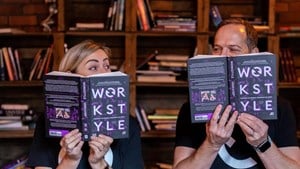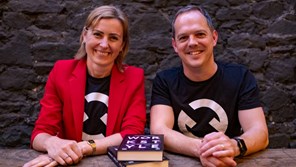Is retirement our only option? Redefining work in later life
6 minute read

Retirement as we know it is changing – could something more sustainable take its place?
More and more of us are choosing to work in later life. This should come as no surprise. Traditional support systems such as pensions and community programmes can’t always keep up with the cost of living or the demand.
“With changing social structures and financial realities, full retirement might become obsolete,” says Alex Hirst, co-author of Workstyle, a book dedicated to the concept of sustainable working.
Alex suggests a flexible mindset for employers and employees: “Ideally, retirement options should cater to this desire for continued work, but not necessarily full-time work.”
However, when employers are not on board with continued working arrangements, “retirees” lean towards self-employment. Alex highlights the trend with a statistic: “One in eight workers overall are self-employed [in the UK], but this number jumps to one in four for workers aged 60-69.”[1]
Lizzie Penny, Alex’s business partner and co-author, acknowledges freelancing as a way to balance work and a healthy lifestyle but recognises it's not for everyone. For this reason, she and Alex are encouraging companies to offer flexible “workstyles” to retain experienced talent and optimal productivity.
Alex and Lizzie highlight in their book that “industrial-era norms” and “legacy cultural working practices” have been “holding all of us back from being as productive as we could be”. Trust and flexibility – with the aid of technology – are crucial to driving a company’s productivity and employee well-being.

What does a sustainable workstyle look like?
“I find the rest of the world has caught up with me,” writes 90-year-old tech entrepreneur Dame Stephanie Shirley in the foreword of Workstyle.
Dame Stephanie, a Kindertransport refugee, defied the odds in the 1960s by starting a revolutionary work-from-home software company staffed mostly by women. Using the alias ‘Steve’ to secure meetings in the male-dominated IT world, she built a $3 billion business that valued employee well-being and flexibility by fitting work around her employees’ lives. That business would later float on the London Stock Exchange in 1996, making 70 of her staff millionaires [2].
“Sustainable work is about pacing oneself over a longer career,” says Alex. For example, working a compressed schedule (e.g. three-day weeks) for a longer period might be more sustainable than a full-time schedule for a shorter period.
Lizzie agrees: “If you're going to be working until 85, you need to do it in a way that won't burn you out."
How to become a workstyler
Alex and Penny have created a free online community of workers and freelancers (AKA workstylers) that embraces a “workstyle revolution” like Dame Stephanie’s. They are sharing their message with MPs, freelancers, workers and companies worldwide.
For example, if you need guidance on how to ask for a workstyle change or how to approach a client or employer on a tricky matter, you could turn to the Workstyle community. No question is off-limits – ask anything and receive supportive guidance from fellow members.
Lizzie says the community can help people in later life overcome the outdated idea of needing to be “seen” to be productive, and build the confidence to advocate for a workstyle that benefits freelancers, employees and employers alike.
Tips on how to gain confidence when working in later life
We asked Lucy Standing, founder of Brave Starts, to share her advice for anyone looking forward to the next chapter in their professional lives. Her team support their members to find fulfilling work at the age of 45+.
Start with a positive and curious mindset
“Being open to new experiences sounds cool until the reality of starting over, taking a pay cut or dropping seniority status sinks in. But the right mindset will recognise this as inevitable. In the ‘no job for life’ era, we have to accept this will mean a series of careers and not one linear trajectory.”
Don’t be afraid to seize opportunities
“As we get older, we have more red lines around what we won't accept, but with literally thousands of jobs, the only way to establish if something is right is to act.”
Lucy suggests doing work experience; giving time and effort in return for opportunities to learn if something feels right.
“We liken this process to dating – did you ever marry without dating? You won't know what job is right for you by reading a job description,” she says.
Recognise the positives networking can offer
Lucy encourages everyone to network. She says it is a great way to socialise and ask insightful questions.

Sign up to the Age Co Newsletter
Each month, our email newsletter delivers inspiring stories, practical guides to later life, plus the latest news about Age Co and the charitable work we support.
